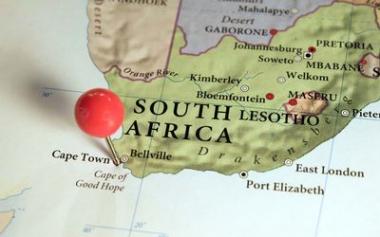Elections to have no Impact on SA's property business
 It is a sign of the increasing maturity of South Africa’s democracy and economy that the next general elections which are less than a hours away, have had no impact at all on the property markets and are unlikely to cause much of a ripple.
It is a sign of the increasing maturity of South Africa’s democracy and economy that the next general elections which are less than a hours away, have had no impact at all on the property markets and are unlikely to cause much of a ripple.
IT is a sign of the increasing maturity of South Africa’s democracy and economy that the next general elections which are less than a hours away, have had no impact at all on the property markets and are unlikely to cause much of a ripple.
Election 2014 could have a positive outcome for the South African property market says Ronald Ennik, founder and chief executive officer of Christie’s International-affiliated Ennik Estates.
"The results at the polls may well turn out to be the medicine so badly needed to put back on track a government leadership that needs to re-embrace the integrity that has both anchored and driven the ANC for the past 100 years," said Ennik.
He says if it does, the post-election improvement in governance – particularly on the corruption front – will do wonders for economic confidence and sentiment…and, not least, help sustain the current uptrend in residential property sales.
Meanwhile, Lew Geffen, Chairman of Lew Geffen Sotheby’s International Realty says in many countries where the markets are less stable and mature politically charged periods such as elections and transitions usually have a negative effect on the markets.
“In the past, election periods in South Africa have been the cause for a measure of economic anxiety with some people tending to turn to safe investment havens as the poll approached. However, this year, despite currency woes and a likely interest rate hike in the next few months, there has been no disruption to the property markets,” he said.
Geffen adds, “We have not seen a dip in sales leading up to the actual election and ultimately despite the state of the currency and the country’s downgraded credit ratings, the property market is likely to remain in the healthiest state it has been since around 2007.”
He says, “Property is still affordable and it is stable. We’ve seen an average year-on-year increase of just over 8% in property prices across the country, with pockets that have significantly outperformed that. This year, with a more steady property market and despite the election, chances are good that we will see an even greater year on year rise because of the value and security that property affords.”
Geffen says property has always provided a measure of secure wealth protection, but even more so this year, which is clearly demonstrated by the number of people who are using offshore capital to buy local property.
Geffen says February’s budget speech also went some way towards seeing more offshore money being invested locally, since the much-speculated increase in “wealth tax” did not materialise in the 2014 budget.
He adds, “Though there may be the prospect of further mining strikes and rising inflation continuing to negatively affect the value of the Rand, in property terms it will largely be to the benefit of South Africa’s luxury sector.”
Geffen says, “The stable and low short-term interest rates we have enjoyed since mid-2012 have enabled the property industry to trade itself out of most of the difficulties encountered during the recession, and to plan forward with some degree of certainty and confidence”
This maturity and market stability would appear the greatest achievement by South African business over the last 20 years during which our economy has transitioned from a closed and isolated economy to a globally integrated one.













